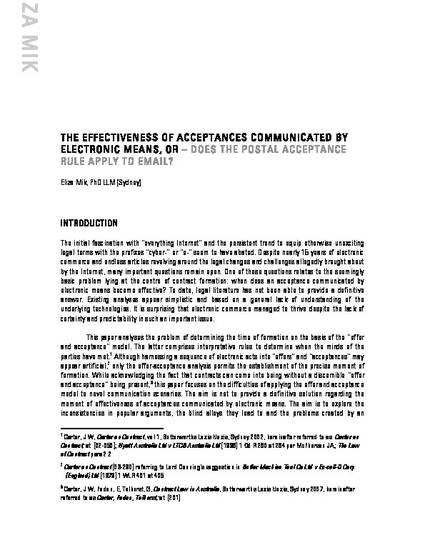
The ‘traditional’ classi?cation into ‘instantaneous’ and ‘non-instantaneous’ methods of communication must be abandoned. As all Internet transmissions are instantaneous, the choice between the principle of receipt and the postal exception must be based on other criteria. The focus must be shifted from communication devices to the characteristics of the communication process. The latter resembles either dealings face-to-face or dealings at a distance. This simple division should remain the basis for all analyses. Instantaneity and control are two of many characteristics of face-to-face dealings and are not the only factors to be taken into account when making the choice between the principle and the postal exception. The focus must be shifted from the speed of transmission and the control of the communication process to the question whether the communication process is interactive and real-time. If the interaction resembles face-to-face dealings, the application of the principle is unquestionable. The postal acceptance rule can only be debated if the interaction does not resemble face-to-face dealings and one of the parties deserves protection from the risks of the communication method chosen by the other.
- contract law,
- e-commerce,
- online contracting
Available at: http://works.bepress.com/elizamik/19/
